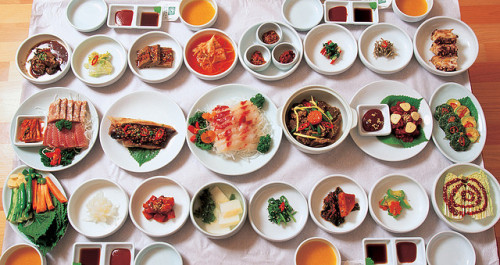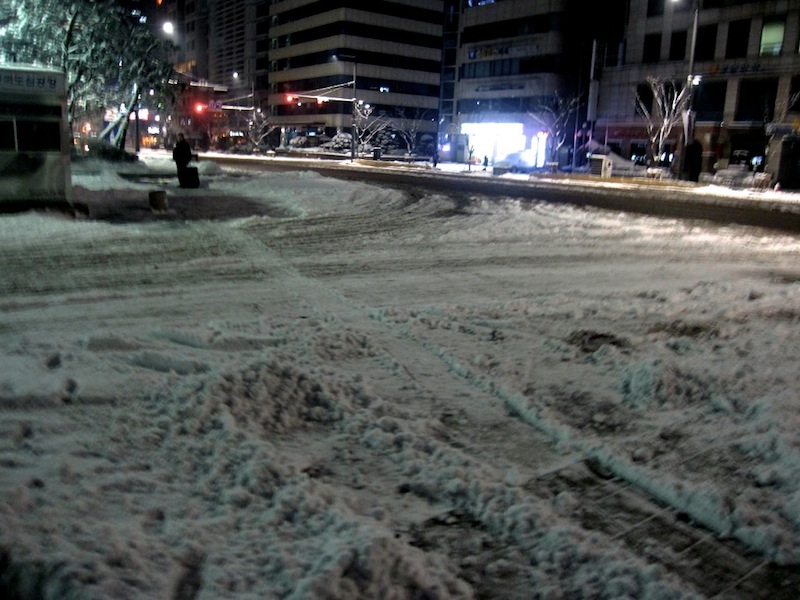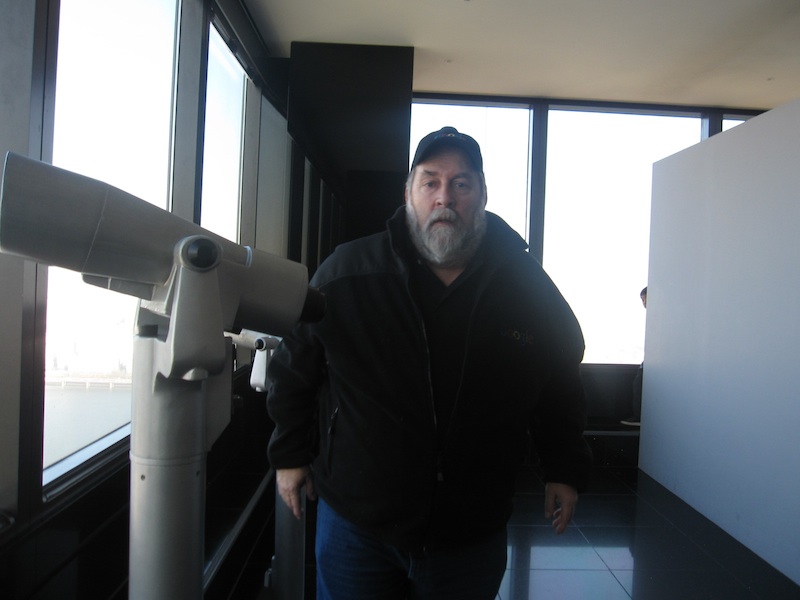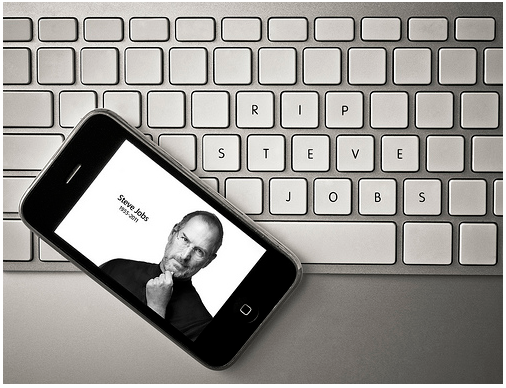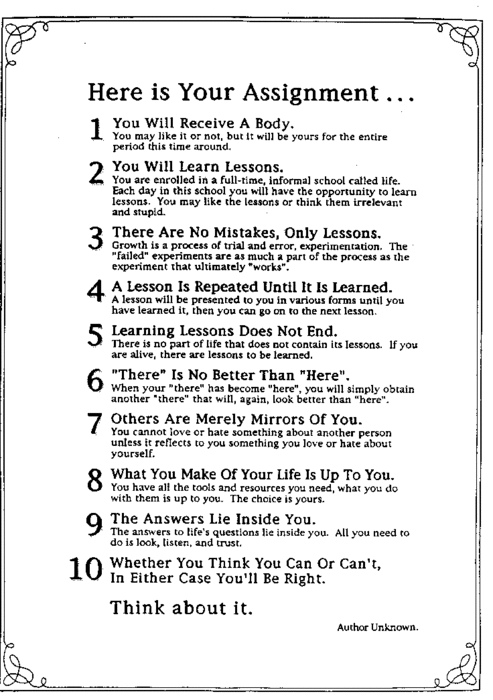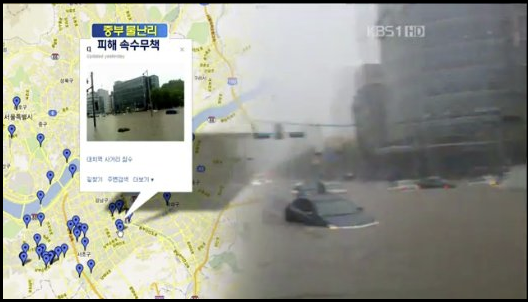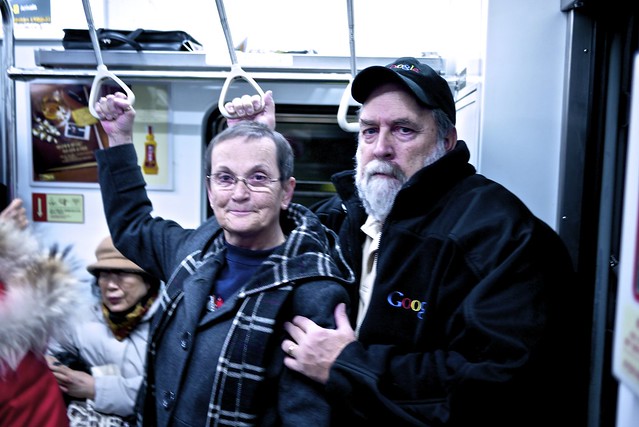Family post reunion
I realize I haven’t really shared my experience about the first meeting between my Korean family and my parents. Although it was already planned for some time, I didn’t realize it was that big of a moment for everyone involved and I can remember my family was getting real nervous about meeting my parents for the first time. I kept telling them that my parents were really cool nice people. There’s nothing they should be worried about but I can understand their apprehension. I would be nervous too. My parents were a little hesitant as well, like unsure what to do in this completely new scene, something they had never been in before. For some reason, I was real cool about the whole meeting and knew it’d go fine. Which it was.
I should mention that one of the things I learned about my family was they never thought I would be raised by parents who were Deaf. They thought I would be raised by hearing parents. That was for 20 years. So, since my parents were deaf, I had to get an interpreter, which I was fortunate enough to find one. She was able to interpret Korean, English, ASL, and KSL all at once. Amazing woman! I will tell more about her at another time. Since I had already met my birth family back in 2002, then visited again in 2008 to see my newly born niece, and I got a chance to work in Korea for a year, I’ve gotten used to the presence of my family, as opposed to what it was in 2002 where it was all but uncertainty. Obviously, that wasn’t the case for both parties this time.
I must say that it took me a while to finally understand my parents’ initial pessimism about me discovering my family in Korea. Since my parents were born and raised in America where economy was a free market capitalism, I realize my parents were used to the idea of buy-it-and-it-is-yours. They carried that kind of mentality over to adoption as they worked hard to save money to be able to afford adoption. When they finally adopted me as their only child, they thought I’m all theirs and nothing will ever take that away. Needless to say, they were very taken aback when I discovered my birth family in Korea in 2002 and they didn’t know what to do or what to say. My mom mostly said nothing but my dad would remind me that you were let go for adoption and we got you and provided you a good care and home. That’s the thing about my parents, as they were raised on capitalism ideals and also Christianity in that you be nice to kids and provide shelter. I didn’t want to have too big of a confrontation and I kind of let things settle by themselves. And I was busy with school stuffs anyway. After a while, we had gotten used to the realization that I had a family in Korea after all and what’s more, my sister was deaf and married to her husband who was deaf too. So, I was very curious about that part and my first question was exactly how deaf were they? do they use sign language to communicate? or were they more like hard of hearing in that they were able to communicate by talking and do not know any sign language? since both parents and I used ASL, so I wondered if they used KSL. Do they experience similar frustrations that most deaf people generally experience in life? I had questions like that and I basically waited till I met them for the first time and I would get all my answers.
My brother asked me, “So, your parent are going to visit here during Christmas time?” I said yes. He said “Okay, I wanted to make dinner plans for us.” So, we talked about that and what would be a good dinner for everyone. We finally came down to a traditional Korean food cuisine and we made a nice dinner reservation in the Gangnam district, which was pretty upscale. At that time, I kind of knew that we wouldn’t be thinking too much about dinner — it was just a setting for us to meet and since my parents were a first time visitor to Korea, at this dinner, they didn’t have to decide and order dishes, as waitress would keep bringing different dishes onto the table. I also thought my brother or my family could explain some dishes and recommend them, as a way to break the ice. When we arrived at the place, the restaurant looked very nice. It had a nice Korean architecture going on and we were seated inside a traditional Korean room with doors that shut. We were dressed nice and finally, it’s time to start introductions.
Deep inside, I must say it was a big moment for me because this was something I had imagined so many times in my mind, and sometimes, in my dreams. I really wanted for both my parents and my family to meet each other. It finally all came down to that and to my own fortune, I got an interpreter who knew all languages needed to facilitate communication over the dinner table. As it turned out, my niece was the perfect ice breaker as we all looked at her and said words to describe how cute she was. It didn’t take very long before we would talk about my adoption and that my family wanted to take a moment to say a big thanks and how grateful they were for me to be adopted by them, my parents. The foods would arrive and naturally, my parents had trouble identifying which kinds were they and since my dad liked food, he would try them all. My parents had to let the interpreter know that they didn’t know how to use chopsticks, so she informed the waitress and she got some western utensils for my parents. That got everyone to laugh. My parents told my family they had the best times raising me and that it was a blessing to them and wouldn’t have it any other way. My mom brought some pictures of me as a young kid and showed to them. My dad seemed to be having a nice time talking with my sister and she was trying to teach my dad some KSL signs and my sister’s husband already knew some ASL, so they were able to carry a conversation on their own. I knew my mom wasn’t as gregarious as my dad, she’s more on the sensitive side and can be emotional, so I kept checking on her and making sure she’s all right. I think I know my mom better than anyone else and I would often reassure her. My mom had some curious questions to ask the birth mother, especially when I first arrived in the U.S. The interpreter interpreted and the birth mother tried to answer them as best as she could but frankly, it was a very long time ago, and obviously emotional, so she couldn’t remember all of it. I realize it wasn’t that important to remember the past exactly. The point was that we’re all here, able to share dinner together, talking, and counted our blessings.
All in all, dinner went very well and my parents thought the Korean dinner cuisine was interesting and that the walled room and no chairs made up for a neat atmosphere, obviously Korean. My family told my parents that this kind of dinner was very similiar to what the kings from the Joseon dynasty would normally have in their dinner. My mom said “oh really, wow!”
The night was still young and we wanted to talk more, so we walked to a nice coffee place not far from the restaurant and we got our coffee there. My dad thought the coffee was very good, impressed by the barista who made it for him and told him to please enjoy the coffee. And that would be how our reunion went.
-nathan
